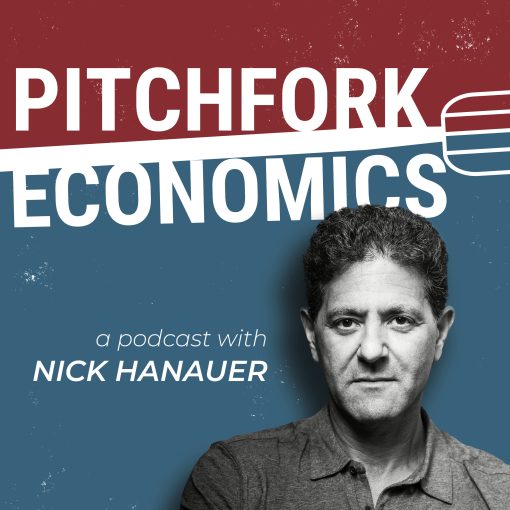This week, Nick and Goldy sit down with ethics professor Ingrid Robeyns to discuss her groundbreaking new book, Limitarianism: The Case Against Extreme Wealth. Robeyns challenges the idea that it’s acceptable to allow extreme wealth concentration and inequality to persist, advocating instead for a hard cap on wealth accumulation. Nick and Goldy navigate the moral and practical implications of wealth limits on society, democracy, and ecological sustainability.
Browse Episodes
LIVE from DC: Redefining the Center (with Heather Boushey)
This special episode of Pitchfork Economics features a live conversation from the “Redefining the Center: How to Make Middle-Out Economics the New Mainstream” conference hosted by Democracy Journal in Washington, D.C. Heather Boushey, a member of the White House Council of Economic Advisors, joins Nick for a wide-ranging discussion moderated by Michael Tomasky, editor of Democracy Journal. Hanauer & Boushey explore the policy initiatives being pursued by the Biden administration that prioritize working families and promote economic growth from the middle out and discuss the crucial role of the middle out as a paradigm shift in how people think about economic cause and effect. This dynamic and thought-provoking discussion was a great start to an outstanding conference.
The True Crime of Wage Theft (with Terri Gerstein)
In the shadows of corporate greed and exploitation lies a sinister crime that is silently perpetrated, leaving countless victims in its wake—a crime that affects millions of hardworking Americans every year and sucks billions out of our economy —Wage Theft. No industry is immune to this insidious crime, from restaurant workers to construction laborers. On this episode of Pitchfork Economics, we are joined by Terri Gerstein, Director of the Labor Initiative at NYU Robert F. Wagner Graduate School of Public Service, to unpack the chilling truth behind these workplace crimes, learn who the perpetrators are, and uncover how they get away with it. Most importantly, what can be done to stop them?




